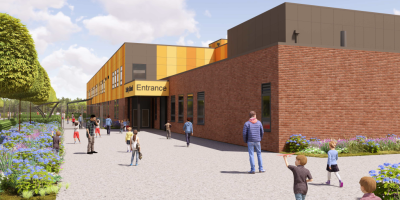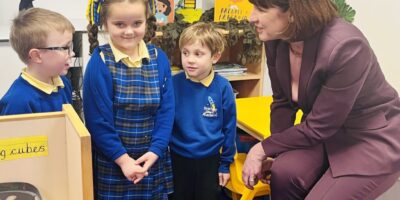By Kevin Scott
As educators, one of the most rewarding moments is witnessing a child’s newfound enthusiasm for learning – those lightbulb moments. Recently my son, who is in Year 4, finally discovered his passion for education thanks to an engaging topic on World War II. He came home after each weekly history lesson, eager to share his new knowledge with a thirst for finding out more. This is something we have not seen before and I am convinced that this transformation serves as a powerful reminder of history’s potential to captivate young minds, and highlights the importance of well-crafted history lessons in primary schools.
History is more than just dates and events: it’s the story of humanity filled with compelling narratives that can inspire and educate. My son’s experience is testimony to this. His curiosity was piqued by the stories of bravery, resilience and the significant events of World War II – although the tanks, warships and guns might have played a part in this too! He began asking questions, requesting new books and even discussing historical events at the dinner table. This newfound interest wasn’t just about learning history; it was about igniting a love for learning itself.
History has an important role to play in holistic education with the Education Endowment Foundation (EEF) clearly stating that a well rounded education that includes a strong emphasis on history can significantly impact students’ academic and social development. The EEF’s research highlights several key benefits of integrating history into the primary curriculum.
- Critical Thinking Skills
History encourages children to analyse, interpret and evaluate sources and events. These skills are transferable across subjects and are crucial for developing critical thinkers.
- Cultural Awareness and Empathy
Learning about different periods and societies helps children develop a broader understanding of the world and fosters empathy by connecting with the experiences of people from various backgrounds and cultures.
- Engagement and Motivation
When children find a subject engaging, their overall motivation to learn increases. As witnessed first hand with my son, a well-chosen history topic can spark a child’s curiosity and drive their desire to explore further.
- Literacy Development
History lessons often involve extensive reading and writing, helping to improve literacy skills. Students learn to construct arguments, write reports and understand complex texts.
Teaching history in primary school is not just about imparting knowledge of the past, it’s about shaping inquisitive, empathetic and well-rounded individuals. By embracing the latest strategies, supported by the latest EEF research, we can inspire our students to not only learn about history but develop a lifelong love of learning. Through the effective use of storytelling, interactive activities, use of primary sources, trips and visitors – we can unlock the potential of history to engage, educate and empower our children. After all, understanding the past is key to shaping a better future.













